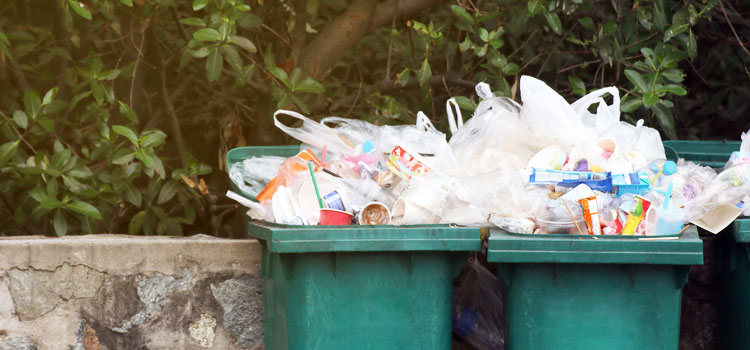
Garbage disposal in strata properties – not a throwaway topic
The lifestyles being led by strata property owners across the country continue to shape our communities. From pet ownership to sustainability, the way we choose to live is a trigger point for a range of changes recently seen in strata community
In recent times, the strain placed on community garbage disposal has become one of the more pressing issue for strata property owners to think about. What’s changed you ask? So much.
The popularity of online shopping platforms like Amazon and food delivery services like Uber Eats and Deliveroo have seen personal waste jump extraordinary amounts and it’s causing a strain of community systems.
At a 2018 meeting of the Victorian Waste Management Association, one expert outlined that takeaway meals are connected to an emerging trend of waste chutes becoming clogged and full of oil and grease, to the point where self-closing lids don’t work.
Likewise, the growing popularity of the Netflix show “Tidying up with Marie Kondo” has also sparked a de-cluttering trend that has played right into the existing problem of illegal dumping of furniture and more on common property.
Since community living is a shared responsibility, in a strata property, one person’s trash becomes everyone’s problem. The key lies in understanding and adhering to your building’s by-laws.Here is PICA Group’s list of tips to help your community tackle issues with waste, and why it’s important:
- A quick set of tips to help your community rise above the waste strains
- Why is it important these guidelines be followed?
Here’s a quick set of tips to help your community rise above the waste strains:
- Set up dedicated collection point for packaging waste
Trips to IKEA or deliveries of products from online stores are the most common ways large packaging comes into strata communities. Large packaging can be very problematic for waste chutes, given its size. Fridge boxes, couch wrapping, and large quantities of bubble wrap are just a few types of packaging that can block waste chutes and fill up bins prematurely, days before collection. Consider setting up a dedicated collection point in your community to mitigate this risk. - Issue guidelines for how to dispose of takeaway food waste
Better waste management often starts with better education. Consider downloading some recycling and waste management best practice guides and placing them in prominent locations or on your building notice board. - Re-issue relevant waste disposal by-laws to community members
To help bust bad habits, we recommend communities facing waste management problems re-issue by-laws to community members to clearly articulate rules and expectations. Highlighting the proper processes and consequences for breaking by-laws may assist your attempt to fix waste issues. - Make access to garbage disposal systems easier
Experts have also flagged difficult access to rubbish disposal facilities as a cause for poor community waste management. Review whether your building makes it easy enough for owners to dispose of their rubbish.
Why is it important these guidelines be followed?
Minimising the amount of combustible materials in and around the building is a core component of good fire safety. Excessive amounts of combustible materials, including household rubbish have been shown time and time again to be problematic when reducing fire risks.
In fact, the Victorian Building Authority (VBA) has listed rubbish and clutter as a major focus in its guide for managing flammable cladding fire safety concerns.
The advice is that large amounts of rubbish should not be stored in or around the building including (but not limited to) balconies and inside individual units. Ensure rubbish bins are not stored against the external walls of the building.
Want more information on waste management and garbage disposal? Read our ‘Slam dunk the junk’ guide for personal waste management. It covers by-laws, personal responsibilities and helpful tips to make sure you’re contributing to good waste management practices.
If you’d like to find out more on how to deal with strata problems, download your free Community Living guide on by-laws. Or for a consultation to review your by-laws by our Kemps Petersons Legal team, click here.


